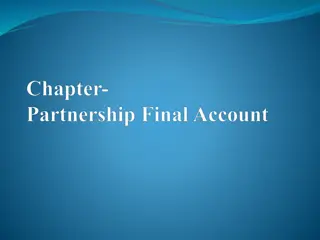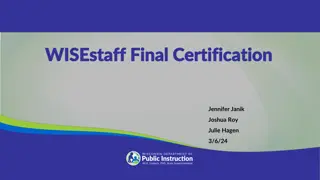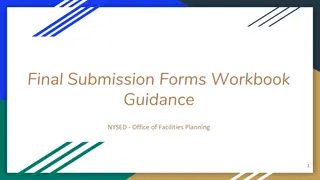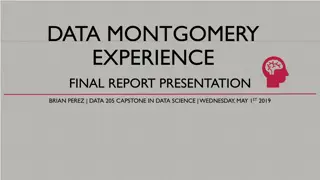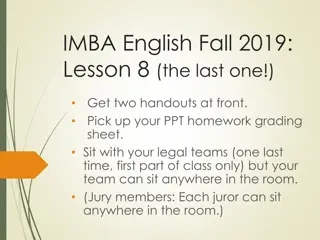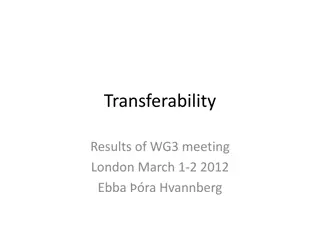
Academic Freedom and Changing Conditions in Academic Work: Legal and Conceptual Aspects
Explore the legal and conceptual aspects of academic freedom in the context of changing conditions in academic work. The texts by Hunt and Karran delve into defining academic freedom, measuring it through constitutional protections, and examining autonomy within institutions of higher education. Gain insights into the evolving landscape of academic freedom and its implications on scholarly discourse and governance.
Download Presentation

Please find below an Image/Link to download the presentation.
The content on the website is provided AS IS for your information and personal use only. It may not be sold, licensed, or shared on other websites without obtaining consent from the author. If you encounter any issues during the download, it is possible that the publisher has removed the file from their server.
You are allowed to download the files provided on this website for personal or commercial use, subject to the condition that they are used lawfully. All files are the property of their respective owners.
The content on the website is provided AS IS for your information and personal use only. It may not be sold, licensed, or shared on other websites without obtaining consent from the author.
E N D
Presentation Transcript
WP3 : Academic freedom and the changing conditions of academic work: legal and conceptual aspects
(1) Main concepts and issues that the texts define or contest Hunt (2010) Definitions academic freedom related to the freedom from retaliation for their statements that goes beyond the freedom accorded to other members of society By tradition and often by legally binding contractual arrangements = Bargain with society Double standard which is used by society Observations Articles (both Hunt and Karran) are not written with the idea of defining the concepts Hunt does not discuss or question the conceptualization/concept of academic freedom but takes it for granted Hunt does not give evidence for some of its claims (versus: to be responsible you have to give evidence)
(1) Main concepts and issues that the texts define or contest Karran (2007) Parameters for measuring academic freedom constitutional protections for freedom of speech, academic freedom, freedom of training and research, institutional autonomy specific national legislation relating to academic freedom, freedom of training and research, institutional autonomy institutional autonomy and internal governance of the university (self- governance) Method of appointment of the university rector Existence of academic tenure levels of protection: low, medium, high
(1) Main concepts and issues that the texts define or contest Karran (2007) Definitions Autonomy: UNESCO defintion : Autonomy is that degree of self- governance necessary for effective decision making by institutions of higher education regarding their academic work, standards, management and related activities ... and respect for academic freedom and human rights. + institutional form of academic freedom Procedural + substantive autonomy (Berdahl (1990))
(1) Main concepts and issues that the texts define or contest Karran (2007) Observations The concept of academic freedom is not defined in itself concepts of autonomy , institutional autonomy , freedom of teaching and research, freedom of speech are all used This is a discussion of the existing legislation (legal perspective), not of the existing practice(s) Analysis is very quickly outdated (rapidly changing legal context)
(2) Theoretical and political position? Why? Hunt (2010) 2 aspects to evaluating a speech: Worrying about the truth of what is said (scientists) Worrying about the implications of saying it (other parts) Karran (2007) from the legal perspective Epistemologically: He is aware of the limitations of his research Does not make claims on the presence or practices of these laws in everyday life This research = opening for further studies
(3) in your own research? in your theoretical or empirical work? Not directly, but indirectly



